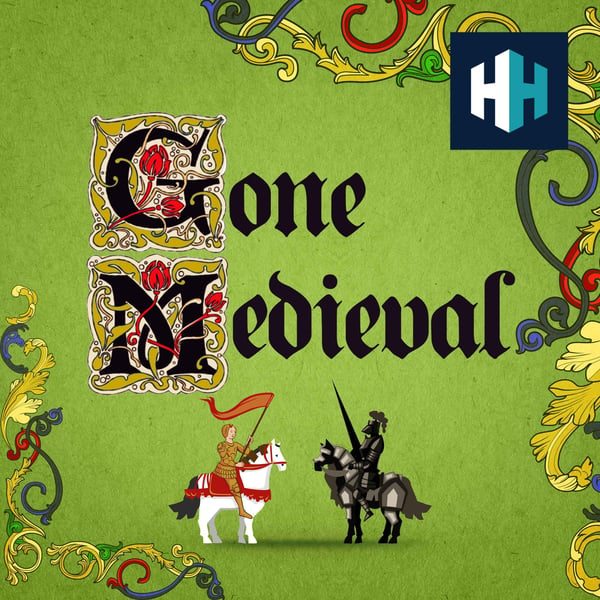Medieval Warfare: Deception and Trickery
Gone Medieval
History Hit
4.6 • 2.2K Ratings
🗓️ 19 May 2023
⏱️ 37 minutes
🧾️ Download transcript
Summary
Deception and trickery have always been a universal feature of warfare and the wars of the Middle Ages were no exception - from the Battle of Hastings to the “fake corpse ruse”. But how did Medieval mores justify deception during wars? Was cunning considered an admirable quality in a warrior? Was the culturally and religious "other" more deceitful than Western Europeans?
In this episode of Gone Medieval, Matt Lewis finds out more from Dr. James Titterton, author of Deception in Medieval Warfare: Trickery and Cunning in the Central Middle Ages.
This episode was edited and produced by Rob Weinberg.
If you’re enjoying this podcast and are looking for more fascinating Medieval content then subscribe to our Medieval Monday newsletter here.
If you'd like to learn even more, we have hundreds of history documentaries, ad free podcasts and audiobooks at History Hit - subscribe today! To download, go to Android or Apple store
Hosted on Acast. See acast.com/privacy for more information.
Transcript
Click on a timestamp to play from that location
| 0:00.0 | Welcome to Gone Medieval from History Hit. To listen to all of our episodes, |
| 0:03.9 | add free and watch hundreds of history documentaries, download the History Hit app, |
| 0:08.4 | or go to historyhit.com forward slash subscribe. And if you're an Apple listener, |
| 0:13.4 | you can subscribe for new, add free episodes within the app. |
| 0:23.2 | Welcome to this episode of Gone Medieval, I'm Matt Lewis. Shivalry is the famous backbone |
| 0:28.2 | of the medieval night and of medieval warfare. Or at least, that's what we're led to believe. |
| 0:33.6 | James titan's new book Deception in Medieval Warfare tackles this question head on. |
| 0:38.7 | What tricks did medieval generals have up their sleeve and how did they reconcile the use |
| 0:43.1 | of deception with their Shivalric principles? James is here to tell us more about the |
| 0:48.0 | underhand tactics and the medieval view of them. Welcome to Gone Medieval James. |
| 0:52.0 | Thank you very much for having me, Matt. It's a pleasure. What kind of source material |
| 0:56.6 | are you able to draw on to start with? As you explore deception in medieval warfare, |
| 1:01.6 | are we looking at chronicles? Are we looking at romantic stories that give us a bit of an insight? |
| 1:07.2 | Mostly what I'm looking at is chronicles. So these are narrative histories written down at the time, |
| 1:15.8 | either by contemporaries or by people living slightly later and drawing on other accounts. |
| 1:22.8 | Sometimes they're drawing on written accounts, sometimes they're drawing on rumours that are |
| 1:27.4 | circulating or eyewitnesses that may have been there. So it's not quite what we would call a |
| 1:35.0 | objective historical reporting, but it's the closest thing that we have in the Middle Ages. |
| 1:41.2 | But you mentioned romance and fiction and literature. I do draw on some of that a little bit in the |
| 1:46.6 | book because this is in some ways closer to what the fighting men of the period are reading and |
| 1:55.2 | listening to. Chronicles are written in Latin most of the time by clerics for other clerics. |
| 2:01.9 | There are secular individuals who can read Latin. We know this and it may be read to them. |
... |
Please login to see the full transcript.
Disclaimer: The podcast and artwork embedded on this page are from History Hit, and are the property of its owner and not affiliated with or endorsed by Tapesearch.
Generated transcripts are the property of History Hit and are distributed freely under the Fair Use doctrine. Transcripts generated by Tapesearch are not guaranteed to be accurate.
Copyright © Tapesearch 2025.

